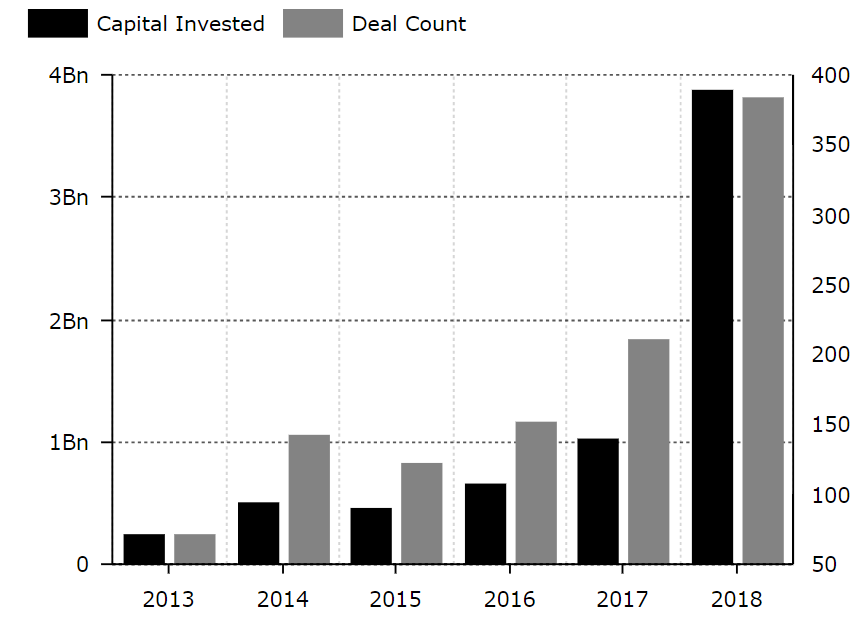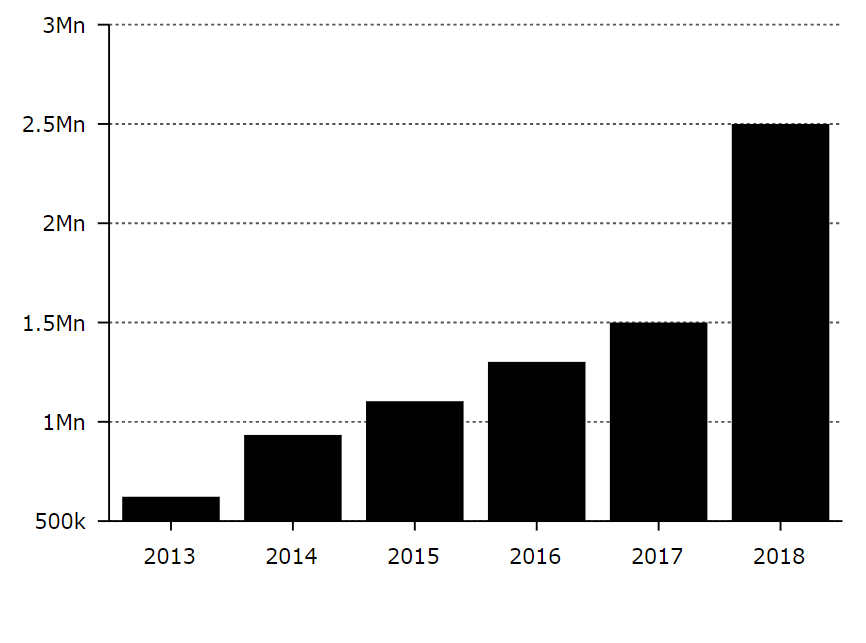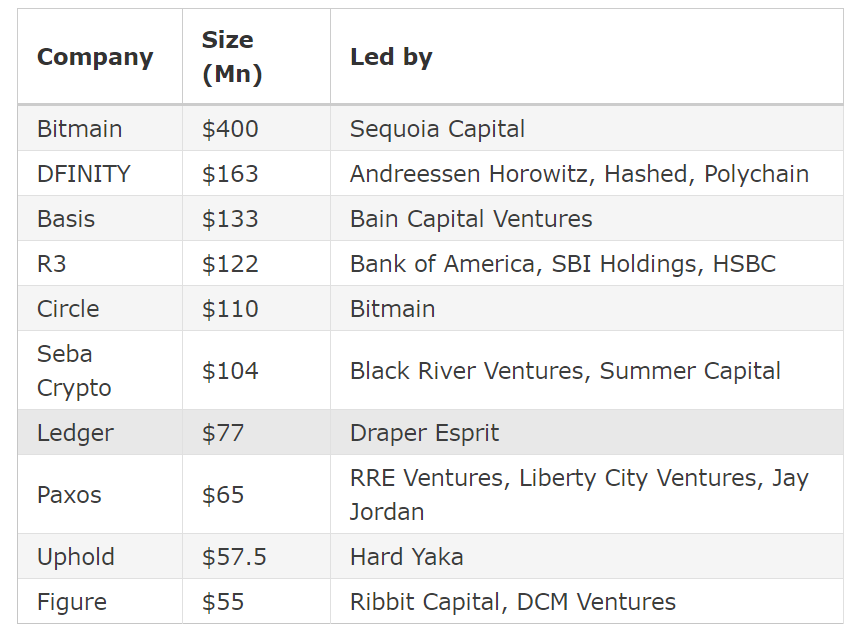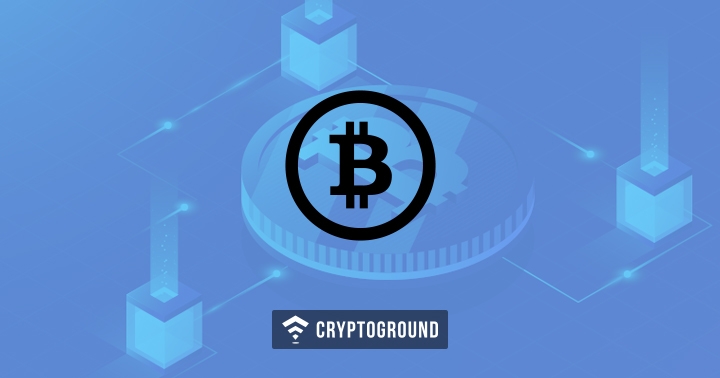Traditional venture capital (VC) investment in the blockchain and crypto companies has grown by almost 280 percent to nearly US$ 3.9 billion, in the three quarters of 2018, as compared to last year. This is according to a report from Diar, which cites data from Pitchbook.
The number of deals has also nearly doubled from last year, it adds, saying that investors are not only writing more checks, but they are also writing much larger checks. The median deal size of crypto and blockchain investments has increased by more than US$ 1 million in 2018 (see charts below).
Venture Capital Firms Blockchain Investments Still on the Rise

Source: Diar
Venture Capital Median Blockchain Investment

Source: Diar
Ten of the largest deals in 2018 have seen blockchain and crypto companies raise more than US$ 1.3 billion in venture capital. Only one of these companies has a native utility token - DFINITY. The rest presents a traditional equity investment.
Largest 2018 Venture Capital Deals

Source: Diar
By far, the most active VC investor is Barry Silbert’s Digital Currency Group (DCG). According to Pitchbook, the firm has closed more than 110 deals in the crypto and blockchain space. DCG is followed by Blockchain Capital and Pantera Capital who have closed 100 deals combined. The most active traditional VC firms are Andreessen Horowitz, Danhua Capital, and Future Perfect Ventures (see table). The most active angels are Tim Draper, Naval Ravikant, Roger Ver and Barry Silbert.
There are close to 2,000 investors who have invested in at least one blockchain company. Diar analyzed the 50 most active investors, which have invested into at least 8 blockchain companies. Approximately 52% of investments are by investors who are not exclusively focused on investing in the blockchain. And as far as location, the US is by and far leading the chart. Investors taking a punt into blockchain companies are predominantly based in the U.S. (79%), followed by China (12%), South Korea (2%) and Singapore (2%).
While the traditional VC investment into cryptos and blockchain space has increased, the Initial Coin Offerings (ICOs) have seen a decline. Diar has found that 70% of tokens are now valued at less than what was raised during their ICO. The majority of tokens have dropped in price by more than 90% from their all-time highs. It adds that the non-equity ICOs are not only scrutinized by the regulators but the founders also have very misaligned incentives as there is no contractual obligation to deliver a product - a reality that to date seems to be the case with few launches, and even less adoption. The amount that was raised through ICOs, as well as the number of projects successfully completing an ICO, is now approaching a one year low. Diar found that while projects are now more reluctant to raise capital through ICOs, traditional venture capital continues to up their risk in the blockchain space.
























